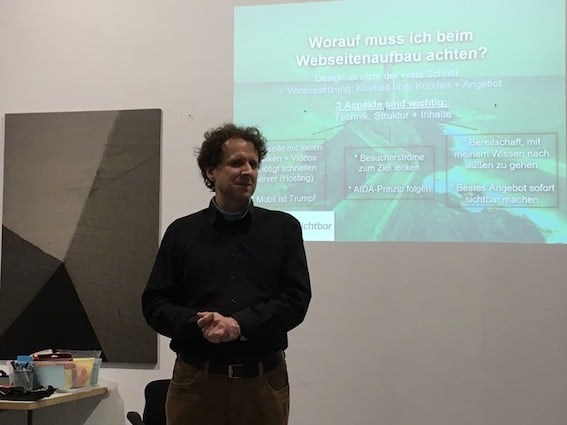Word has gotten around that podcast charts play a role in your visibility. But if you want to be successful on a broad scale and maybe even bring new listeners to the medium podcast, then you should pimp your podcast info not only for Cupertino & Co. but also for web search engines.

But what is this podcast SEO actually? “SEO” is short for “Search Engine Optimization”. Fact is that most Internet users are not yet familiar with podcasts, or at least not actively using them - it’s quite different with Google, the number one source for all kinds of queries. So it is only logical and consistent to bring your podcast closer to this mass of users.
In this four-part series of articles by our guest author Lars Stetten from RundumSichtbar, you can find out how this works and why this method also simplifies your acquisition.
Further parts of the series “Podcast marketing with SEO - Strategically increasing reach”.
- Part 1
- Part 2: How does podcast SEO work?
- Part 3: Transcripts - the controversial method
- Part 4: Voice search - an opportunity for podcasters?
Who is Podcast SEO suitable for?
Podcasting can be part of a business strategy and is therefore predestined to play out its strengths in the business environment as a communication and marketing platform.
Podcast-SEO is particularly suitable if:
- despite many episodes you hardly get any subscribers, feedback or requests
- you have many strong competitors
- you are looking for a content strategy that stands out from the crowd
- you have little or no budget for extensive branding activities
- your subject needs explaining
- you finally want to be rewarded for your efforts
These points apply above all to business coaches, trainers and consultants. But podcast SEO is also a conceivable way for entrepreneurs whose offer is aimed at a comparatively small target group. This could be, for example, a B2B company from industry or even from the social sector.
Google and podcasts - the state of affairs
Google is still by far the most popular search engine in Germany with a 95 percent market share. This is probably due - apart from the habitual effect - not least to the fact that users have the confidence that they will get the best results here. Among these results we find, for example, blog articles, videos, pictures or, more recently, podcasts.
So the whole podcast SEO is superfluous? No, because search engines such as Google need text information in order to play out suitable results. Currently, only the titles and descriptions are taken into account. In addition - as of today - podcasts are only found in the Google search if the word “podcast” also appears in the search term.
This is how you currently see podcast episodes in Google Search:
Determining the appropriate target
We podcasters first think about attracting as many listeners as possible. The ulterior motive behind this: “If I have a sufficiently large audience, one or the other will be interested in my offer”.
But your podcast is not a hobby project, you invest a lot of time and that should be worth it for you. Therefore it is important to set clear measurable goals. For example, this could be 30 percent more requests in the next 12 months.
Other examples of targets are:
- 50% more requests in the next 6 months for the podcast title or specific episodes
- 20 % more first conversations from podcast listeners in 3 months
- 20% more newsletter subscriptions in 6 months
So much for part one of our podcast SEO series. Part two will follow next week.
About the author
Lars Stetten studied psychology and is a computer scientist. He has been dealing with topics of online marketing and especially search engine optimization for over 10 years. His motto is: “I have 2 things in common with Google - I am almost blind and love to analyse websites”. As an audiophile, he has been using podcasts for many years and is closely observing the market. Since 2018 he is a freelancer and offers - among other things - a special SEO package for podcasters.
